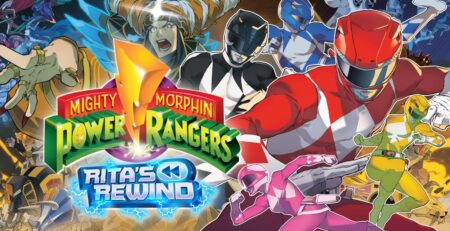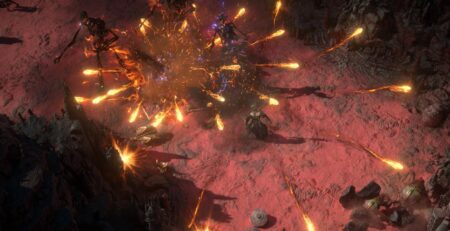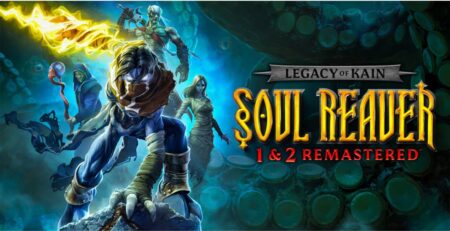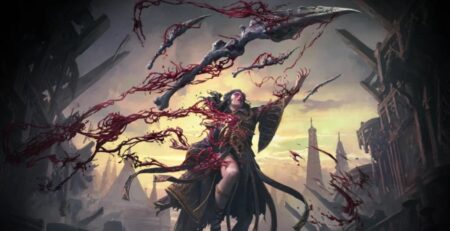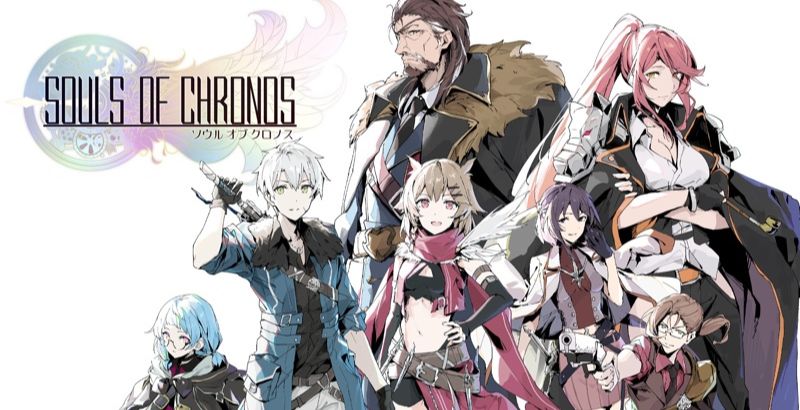
Sid is a young man trying to make his way in a world recovering from a horrifying event. By his side is Torii. Torii is a Chronos. A special being that feeds off of an individual’s time and in turn grants them exceptional power. Sid’s hometown of Astella is about to become the focal point of conflict as multiple factions struggle for control over it in Souls of Chronos from developer FUTU Studio and publisher Astrolabe Games.
Crafting a unique fictional setting that feels like a living world, rather than just the window dressing of a story, is a huge undertaking. Details have to be worked out that are not necessary for the immediate narrative but fit with it, making the tale feel like a single moment in a larger story, instead of the entire story itself. This gives the setting far more weight and greatly enhances the player’s ability to get sucked in. Souls of Chronos accomplishes this approach to world-building wonderfully. The world outside of the handful of environments you explore through the roughly 10-hour adventure feels as real as what you see, despite it never coming into view. This is accomplished smoothly through dialogue that brings these facets of the world into focus piecemeal as appropriate. This grows the world, without slowing down the adventure.
That adventure however is not always as strongly assembled as the world it occupies. Sid’s story is one that often left me unsure of how I’m supposed to feel about him and his compatriots as I fought through the many challenges the game set before me. As part of the Hyenas, a gang that controls the town of Astella, the gang was crucial in helping the town recover in the wake of the recent apocalyptic war that raged 15 years before the events of the game. However, these days the gang seems to be more in line with what most of us think of when we see an organization labeled as a gang. Protection rackets, violent crime, and constant skirmishes with their rival organization are the stock and trade now of the Hyenas. As the antagonists come to challenge Sid and company, it always feels like the game wants me to be steadfastly in the Hyena’s corner, but I rarely felt like I could be.
Further confusing my feelings about Souls of Chronos‘s narrative is Sid himself. The game allows the player a fair amount of control over how Sid tackles conversations and story-based problems. Making certain decisions raise Sid’s personality stats, which will open certain dialogue options which can impact which of the game’s endings you ultimately get. As someone who always feels compelled to play the good guy when possible, my Sid felt extremely inconsistent with his personality. My kindness and compassion felt out of place when the gang’s needs called on me to do my duty to them.
The one major story element that Souls of Chronos never fails to deliver on is how Sid interacts with his companion Torii. Torii’s playful nagging is balanced by moments of genuine concern for him, which crafts a heartfelt connection between the two. Her staunch support of Sid is always reassuring, even when it crosses the line into blindness. Sid in turn always notices when things are wrong with his friend, and the many optional conversations the duo can have gives them lots of chances to flesh out this wonderful connection.
The frequent clash between much of the game’s personality and the overall narrative is highlighted further in the visual design. When exploring the world or fighting in combat, the cast of characters is presented in a cute chibi form that fits with the personalities of Sid and Torii when they are together but feels entirely at odds with the death and betrayal of the larger narrative. During conversations, character portraits appear on screen with their dialogue. These portraits feel far more at home in the story than the in-game presentations.
Filling in much of the game’s time is exploration and combat. As you move through the map from area to area, enemies attack in fun, if repetitive combat encounters. Player maneuver Sid through these moments, blasting away with guns, swinging swords, or throwing the occasional bomb around, while Torii supports your battles through her diverse skill set. With few exceptions, these combat moments are just fine. The average encounter requires little of the player to survive, and even the end-game moments are easy if you kit yourself out right. Due to the short amount of time these encounters take, they are never bad but are rarely memorable.

A stand-out feature of this game’s exploration is how it balances enemy refreshes as you wander areas. As the player clears out rooms, enemies don’t respond automatically when they return. Rather, the locations will only repopulate when the player chooses to rest, refilling their health. This system makes it so the player can avoid repetitive battles as long as they can work through the game’s encounters with enough skill to get by simply on the occasional healing potion. I’ve always loved when I’ve come across this mechanic in the past, and it functions just as well here.
Along with the golden path missions the player navigates, Souls of Chronos offers a plethora of side content. Optional missions can bring a lot to the player’s experience. From building out support characters’ narratives to directly impacting how the game ends, exploring the city and engaging with these elements are worthwhile endeavors here.
The most interesting aspect of Souls of Chronos‘s combat is how the game focuses most of its skill progression on Torii instead of Sid. While Sid can upgrade his weapons and equip accessories to fine-tune his combat approach, only Torii can unlock actual skills and level them up. She even gains access to alternate costumes that function like class changes. This allows the character to be a DPS monster or a more support-focused healer character as the player wishes. While this may seem odd at first, it functions well within the story, as Torii is supposed to be the power behind the duo.
The last element we need to talk about with Souls of Chronos is its distinct lack of polish. Dialogue boxes sometimes repeat themselves, characters are misnamed, forcing the player to reread statements to figure out what exactly is going on, character portraits sometimes don’t match who is talking, and some mission descriptions are less than helpful in pointing players toward what their actual objectives are. These hiccups are mostly small annoyances but can add up throughout the game.
When all is said and done, Souls of Chronos delivers a mixed bag of an experience. While I’m intrigued by the world and charmed by its main duo, lackluster combat and a narrative that felt at odds with its visual tone and star’s personality never allowed the game to truly come together in a way that feels satisfying.
Souls of Chronos is available now for Nintendo Switch, Xbox SeriesS/X, PlayStation 5, and PC.
Souls of Chronos
-
Rating - 6/106/10
TL;DR
Souls of Chronos delivers a mixed bag of an experience. While I’m intrigued by the world and charmed by its main duo, lackluster combat and a narrative that felt at odds with its visual tone and star’s personality never allowed the game to truly come together in a way that feels satisfying.

